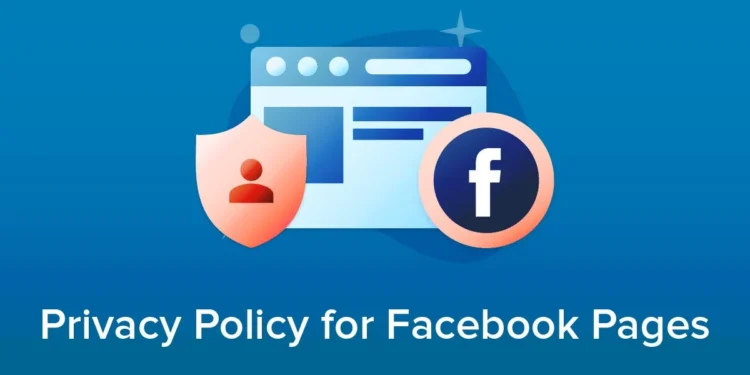Why Facebook Privacy Policy Concerns Everyone
Today, Facebook privacy policy is watching you,more than just legal jargon—they represent a digital blueprint of your life. While most users scroll past privacy updates, they often miss what they’re truly agreeing to. Facebook has transformed from a social app to a personal surveillance tool that quietly observes, analyzes, and sometimes manipulates your behavior. So why should you care? Because the cost isn’t just your data—it’s your freedom, choices, and mental health.
Your Conversations Are Data-Fueled Goldmines
Facebook doesn’t just scan what you post publicly. It’s increasingly evident that even your private messages are analyzed for data profiling. While the platform claims this is to enhance user experience, the extent to which this data is harvested raises major concerns. Conversations—especially ones involving emotional tones, location mentions, product names, or health-related words—feed the algorithm with more refined behavioral insights.
In recent case studies conducted by digital privacy watchdogs, it was discovered that keywords typed in Messenger often led to targeted advertisements within minutes. Although Facebook denies “listening,” the connection between typed chats and instant ad delivery is statistically significant. This suggests that every message is part of a broader ecosystem that tracks your interests, fears, and desires.
Moreover, Facebook partners with other tech companies to sync this conversational metadata with your browsing history, device activity, and even other apps on your phone. This deeply interconnected data trail allows them to build a psychological profile of you that rivals the understanding of your own family members. If you’re wondering why Facebook seems to “know” you so well—it’s because it has studied you more than you realize. Learn more
Cross-App Tracking: From Instagram to Threads to WhatsApp
Facebook’s family of apps—including Instagram, WhatsApp, and the newer Threads app—all integrate user data into a centralized tracking system. While this integration allows seamless user experiences, it also means Facebook knows when you shift moods between platforms or even when you’re switching apps. For instance, a fitness product you browsed on Instagram might show up as an ad on Facebook within seconds. That’s not coincidence—it’s cross-platform targeting in action.
The key issue here is transparency. Many users are unaware that opting into one app means indirectly opting into shared tracking across the Meta ecosystem. For example, your voice notes in WhatsApp, your saved posts on Instagram, and even your Threads hashtags all feed into the same algorithmic brain. Facebook doesn’t see these as isolated activities—it sees them as puzzle pieces forming a bigger version of “you.”
In one independent report published by a digital transparency group, users found that Facebook was able to predict their relationship breakups, emotional instability, or career shifts before they made any public indication. That’s how deep this cross-app surveillance runs—it’s predictive, not just reactive.
Why Deleting Doesn’t Mean Disappearing
One of the biggest misconceptions surrounding Facebook is the belief that deleting content or even your account guarantees privacy. Unfortunately, that’s not the case. Facebook’s data policy clearly mentions that they retain copies of your information for legal, operational, and security purposes—even after deletion.
The issue becomes more complex with shadow profiles. Even if you’ve never had a Facebook account, the platform can build a partial profile of you through your friends’ contacts, facial recognition in uploaded photos, and location tagging. Deleting your data doesn’t erase what others have contributed to Facebook about you.
Furthermore, researchers have shown that deleted chats and media can often be recovered internally by Facebook’s system. While users don’t see this data anymore, it doesn’t mean Facebook has purged it from its servers. In effect, you’re never really off the grid, even when you hit “delete.”
Data Collection: What Facebook Tracks Without You Knowing
Despite privacy settings, Facebook continues to collect data silently in the background. This includes:
- Your browsing habits (even off Facebook)
- Likes, reactions, and time spent on posts
- Your device, OS, and network info
- Contact lists if permission is granted
Case Study: In 2021, a whistleblower revealed internal documents showing Facebook tracked “invisible engagement,” including pause time on posts—even without a like or comment.
Privacy Settings: Designed to Confuse?
Many argue that Facebook’s privacy settings are deliberately complicated. The toggles, submenus, and ambiguous language can mislead even tech-savvy users. According to a study from the Pew Research Center, over 60% of users misunderstand Facebook’s default privacy controls. This confusion works in Facebook’s favor—more data, less resistance.
The user interface is structured in a way that nudges you to keep more settings open rather than private. Notifications that warn, “You’ll lose access to certain features if you turn this off,” pressure users to remain transparent—ironically, at the cost of their own privacy.
To truly understand and tighten your Facebook privacy, you may need to dedicate hours navigating through settings, reading documentation, and adjusting controls regularly. It’s an exhausting task for the average user—which is why many settle for default options, unknowingly giving Facebook full access.
AI Surveillance: How Meta’s Algorithm Understands You
Behind every click, like, or scroll is an AI-driven surveillance mechanism. Facebook employs deep-learning algorithms to monitor and predict your digital habits. These algorithms don’t just guess; they calculate probability models based on billions of interactions per day.
Meta’s AI can predict your next move—whether that’s a breakup, a new job application, or a change in political views—based on subtle cues. It tracks how long you view posts, your eye movement on videos (in some app integrations), and even the pressure of your screen taps. Combined, this paints a vivid psychological profile that advertisers find invaluable.
The scary part? This information isn’t just used for ads. It’s also fed into Meta’s content moderation, feed ranking, and even censorship engines. In other words, AI isn’t just serving you content—it’s deciding what you should and shouldn’t see.
Facial Recognition: How Facebook Knows Where You Are
Despite public backlash, Facebook’s facial recognition features have quietly evolved. Even if you’ve turned it off, the system still maps facial data in background using tags, friend suggestions, and camera roll analysis. This allows Facebook to track your physical presence across events and uploads, building a location-based profile of your movements—even on other people’s photos.
Using Facebook to log in to apps and websites seems convenient, but it’s a major privacy compromise. You may unknowingly give those third parties access to your personal details, friend list, and even likes and shares. Worse, many of these apps retain permissions even after you uninstall them, continuing to siphon your data through the backdoor.
Your Ad Preferences Page Is a Privacy Goldmine
Most users ignore Facebook’s Ad Preferences dashboard, but it reveals everything the platform assumes about you—from income bracket and political views to romantic interests. Facebook’s algorithm creates interest clusters that advertisers use for microtargeting, and this page is where it’s all exposed. Regularly clearing or adjusting this list is one of the few direct ways to control your data flow.
Facebook claims to have strict policies for minors, but in practice, data from teens and children is still collected and profiled. Through Messenger Kids, tagged photos, and connected family accounts, Facebook can build long-term behavioral maps before a child even turns 18. This raises deep ethical and legal concerns, especially regarding consent and long-term digital footprints.
Fazit: Your Privacy Is the Product
In conclusion, the idea that Facebook is a free social media tool is a digital illusion. Your data, behaviors, emotions, and routines are the real currency. The Facebook Privacy Policy isn’t just a legal document—it’s a blueprint for digital surveillance dressed up as service personalization.
From tracking private messages to AI-driven behavioral prediction, the platform is designed to harvest maximum information with minimum transparency. If you’re not actively managing your privacy, then you’re silently giving it away. In today’s digital age, awareness is your best defense.
FAQs – Short and Straight
1. Does Facebook really track private messages?
Yes, Facebook analyzes message content to improve ad targeting, though it denies listening via microphone.
2. Is my data safe if I delete my account?
Not entirely. Facebook retains copies and builds shadow profiles even after deletion.
3. Can Facebook track me across other apps?
Yes, through Meta integration, your behavior across Instagram, WhatsApp, and Threads is synced.
4. How do I protect myself from Facebook surveillance?
Use privacy tools, disable cross-app tracking, limit app permissions, and regularly audit your settings.
















